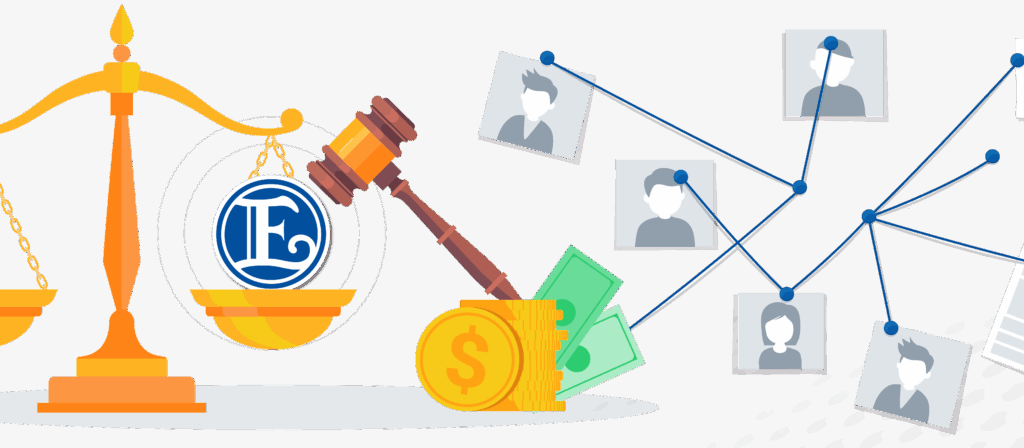Enagic TCPA settlement: A $27M wake-up call for marketers

In one of the largest TCPA settlements in recent years, water filtration company Enagic agreed to pay over $27 million after being sued for allegedly placing unauthorized robocalls to millions of consumers. The kicker? Most of the outreach was done by its independent distributors—not Enagic directly.
This case sends a clear message: Even if you don’t make the calls yourself, you can still be held liable—and the penalties can be devastating. Whether you’re buying leads, using SMS outreach, or partnering with affiliate marketers, failing to verify consent and follow TCPA standards can leave your business wide open to litigation.
In this article, we’ll break down what happened in the Enagic TCPA settlement, what lessons your business should take from it, and how tools like TrustedForm can help shield you from becoming the next headline.
What is the Enagic TCPA settlement?
The Enagic TCPA settlement refers to a $27.3 million class action resolution reached in 2023, following allegations that Enagic’s distributors violated the Telephone Consumer Protection Act (TCPA) by placing robocalls and sending texts without proper prior express written consent (PEWC).
The lawsuit, filed in the U.S. District Court for the Central District of California, alleged that Enagic and its agents used automatic telephone dialing systems (ATDS) to contact individuals about selling or distributing its water filtration products. Many recipients claimed they never gave consent to receive these communications.
The settlement did not require Enagic to admit wrongdoing, but the substantial payout and scale of the class involved underscore the seriousness of TCPA enforcement in lead generation and marketing.
The details behind the Enagic TCPA settlement
At the heart of the Enagic case was the issue of TCPA consent.
Independent Enagic distributors were marketing the company’s products using mass text messages and pre-recorded calls. The plaintiffs argued that these messages were sent using autodialers and failed to obtain the recipients’ prior express written consent—which is important for outreach and compliance with TCPA requirements.
Because Enagic allegedly failed to properly monitor or direct how its affiliates obtained leads or consent, the court allowed the case to proceed as a class action. The proposed class included millions of individuals who received robocalls or marketing texts promoting Enagic products.
While Enagic did not admit guilt, the sheer size of the settlement demonstrates how costly even unintentional or indirect violations of the TCPA can be.
What businesses should learn from the Enagic TCPA settlement
The Enagic TCPA settlement is an example of why businesses need to be careful if performing high-volume calling or texting for sales and marketing campaigns. Here are five key lessons:
1. You can be held liable for the actions of your partners and vendors
It may not matter if your employees, affiliates, or third-party vendors are making the calls. If they’re selling or marketing your products or services, you can be held responsible for their actions under the TCPA.
2. Consent is everything
The central issue in this case was the use of ATDS and proper consent to contact. Under TCPA rules, businesses must obtain prior express written consent before making calls using ATDS technology or sending sales and marketing texts. That consent must be clear, documented, and specific to the message and channel used.
3. Affiliate marketing collaboration and oversight is important
Affiliate marketing can help generate sales leads as well as brand or product exposure in the marketplace. But without collaboration, clear contract instructions, strict oversight, and consent verification, you could end up paying for someone else’s mistake representing your brand.
4. Class actions add up fast
A single TCPA violation can cost $500 to $1,500 per call or message. When millions of calls or messages are involved, the financial risk is astronomical. Settlements like Enagic’s can wipe out budgets, damage reputations, and invite regulatory scrutiny.
5. Outsourcing isn’t a defense
Courts increasingly expect businesses to have robust contract language in place and implement proper compliance monitoring programs of outsourced activities, especially in industries where third party lead generation and third party call center use is common.
How TrustedForm and LeadConduit can help mitigate TCPA risk
One of the most effective ways to reduce your TCPA exposure is to verify and document consent for every lead, before adding them to your CRM—and that’s where ActiveProspect’s TrustedForm and LeadConduit come in.
TrustedForm helps protect your business by providing independent, verifiable proof of consent for every lead. It generates certificates that show exactly when, where, and how a lead opted in—crucial documentation in the event of legal disputes. For companies buying leads, TrustedForm ensures vendor accountability by confirming that leads were collected with proper disclosures and consent. Real-time compliance checks allow you to automatically reject risky leads, while ongoing consent audits help validate that your practices meet TCPA standards and safeguard your brand from false claims.
LeadConduit helps businesses improve lead quality, reduce waste, and boost conversions. It works by instantly processing inbound leads—filtering out bad ones, enriching data, and verifying consent—before routing them to your CRM or sales team. With customizable logic, integrations with trusted partners, and real-time decisioning, LeadConduit gives marketers full control over their lead flow. The result: Cleaner data, better compliance, and more revenue-driving leads reaching the right teams.
Final thoughts
So, what is the Enagic TCPA settlement really about? It’s a cautionary tale for every business that thinks TCPA compliance is someone else’s job. Even when you don’t make the call or send the text, you can still be held responsible.
If your business is generating or buying leads, this case makes one thing painfully clear: Failing to verify and document consent is a gamble you can’t afford to take. The good news? Tools like TrustedForm exist to give you full visibility and control over your consent records.
Don’t wait for a class action to force your hand. Invest in your compliance strategy today—because in the world of TCPA enforcement, ignorance costs, but documentation protects.
Disclaimer: This article is for educational purposes only and should not be construed as legal advice. Always consult with your own attorney prior to making any key business decisions related to the TCPA and other laws and regulations.



